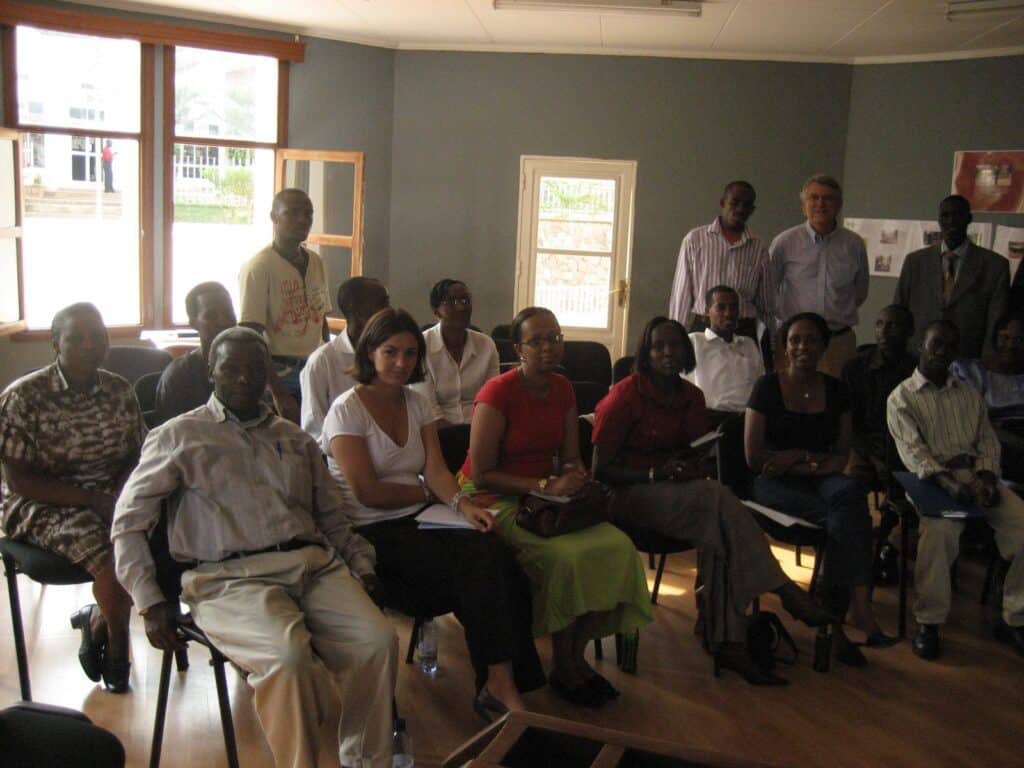Breakthrough in PTSD treatment ‘The Rewind Technique’ gives renewed hope of providing early closure for sufferers.
PTSD sufferers have been given fresh hope after a revolutionary PTSD treatment “The Rewind Technique” achieved a significant milestone with the completion and publication of its inaugural Randomized Controlled Trial (RCT).
The trial indicated that treatment sessions could be reduced to between one to three. The treatment has been pioneered for 30 years by Dr. David Muss who first revealed the PTSD treatment “The Rewind Technique” in his seminal paper “A new treatment for PTSD” in the British Journal of Clinical Psychology. Titled ‘Rewind for Posttraumatic Stress Disorder: A Randomised Controlled Trial’ the RCT was featured in Depression and Anxiety, vol. 2023, Article ID 6279649 with the results pointing towards a potential game-changer for PTSD treatment in the UK and potentially saving the NHS millions.
The Rewind differs from the universally accepted therapies CBT and EMDR which aim to reduce symptoms by providing coping mechanisms. The Rewind instead targets directly the trauma (rather than its effects) with a “rewinding” technique—where the participant imagines they are watching a film of her/his traumatic event. The participant then enters the screen and relives their trauma memory in reverse very quickly.
The authors described it exhibiting positive outcomes in the clinical trial. The authors commented that ‘with a substantial effect size, it holds great promise as an effective PTSD treatment.’ The RCT revealed that Rewind effectively reduces PTSD symptoms, including flashbacks, nightmares, and avoidance behaviors, making it significantly more effective than the control treatment. The RCT’s conclusion underscores Rewind as a vital solution for PTSD treatment at scale, while acknowledging the necessity for further research to validate its long- term effects.
The technique was first brought to global attention with Dr. Muss’s seminal 1991 book ‘The Trauma Trap’. Since then Dr. Muss has trained some 15,000 therapists internationally through the International Association of Rewind Trauma Therapy (IARTT) which he founded. While RT has widely influenced other treatments like the Reconsolidation of Traumatic memories (RTM) Dr Muss remains the sole authority on the comprehensive use of the Rewind Technique in both civilian and military contexts. This year, in conjunction with the Complex Trauma Institute – which has provided the platform to reach out to the Ukrainian mental health professionals – currently approximately 200 professionals have already been trained to the accreditation level, and another 300 are currently engaged in learning this method.
In the UK, an estimated 2,612,000 individuals, excluding cases of Complex-PTSD, are expected to experience PTSD at any given time, with women aged 16-24 exhibiting the highest prevalence, affecting 12.6% of this age group. Only around a quarter of those in need receive NHS treatment via NHS Talking Therapies and symptom improvement is recorded as around 50%. Despite widespread adoption already in various parts of the National Health Service (NHS), the third sector and private practice across the UK NICE (National Institute for Clinical Excellence) are yet to fully embrace this treatment.
Commenting on the RCT results Dr. Muss says: “I am delighted by the RCT results in this validation of an approach that I know and have shown can transform the lives of the many millions afflicted by PTSD. It has been a long journey to get to this stage but we now have the large scale evidence of its results. Closure with RT can be achieved in just one to three sessions, no details of the trauma have to be revealed by the client to the therapist and therapist’s ‘compassion fatigue’ is greatly reduced. Crucially, training therapists is achievable in five hours at a nominal cost compared to the training costs to become a CBT or EMDR therapist.required by NICE”
He continues: “The NHS implementation of Rewind, by reducing treatment sessions from currently between 6 to 20 to one to three, would lead to substantial cost savings, streamlined care and greatly reduced waiting lists without having to train more therapists for NHS Talking Therapies. The NHS forthcoming planned expenditure of £15.55 billion is an increase from the current £13.25 billion. The adoption of Rewind would be a game changer.”

At kigali Memeorial centre. Ministry of Health team.
Picture credit: Dr David Muss training in Rwanda with the VSO, standing second furthest from the right.
About Dr David Muss
Born USA 1943 Dr. Muss attended Notre Dame International School in Rome. Graduated in medicine from the University of Rome (La Sapienza) and arrived in the UK in 1970. Later qualified as a UK doctor L.M.S.S.A On retiring from General practice he continued dedicating himself to the promotion of the Rewind Technique by training therapists, at first going around the country to voluntary organisations and subsequently doing national live workshops till the onset of Covid. He still is involved in training and supervision www.iartt.com
- Gut microbiome could delay onset of type 1 diabetes - 3rd April 2025
- The da Vinci 5 Robot Is Set To Transform Bariatric Care: - 31st March 2025
- Beyond money: the hidden drivers fuelling child food insecurity - 31st March 2025






